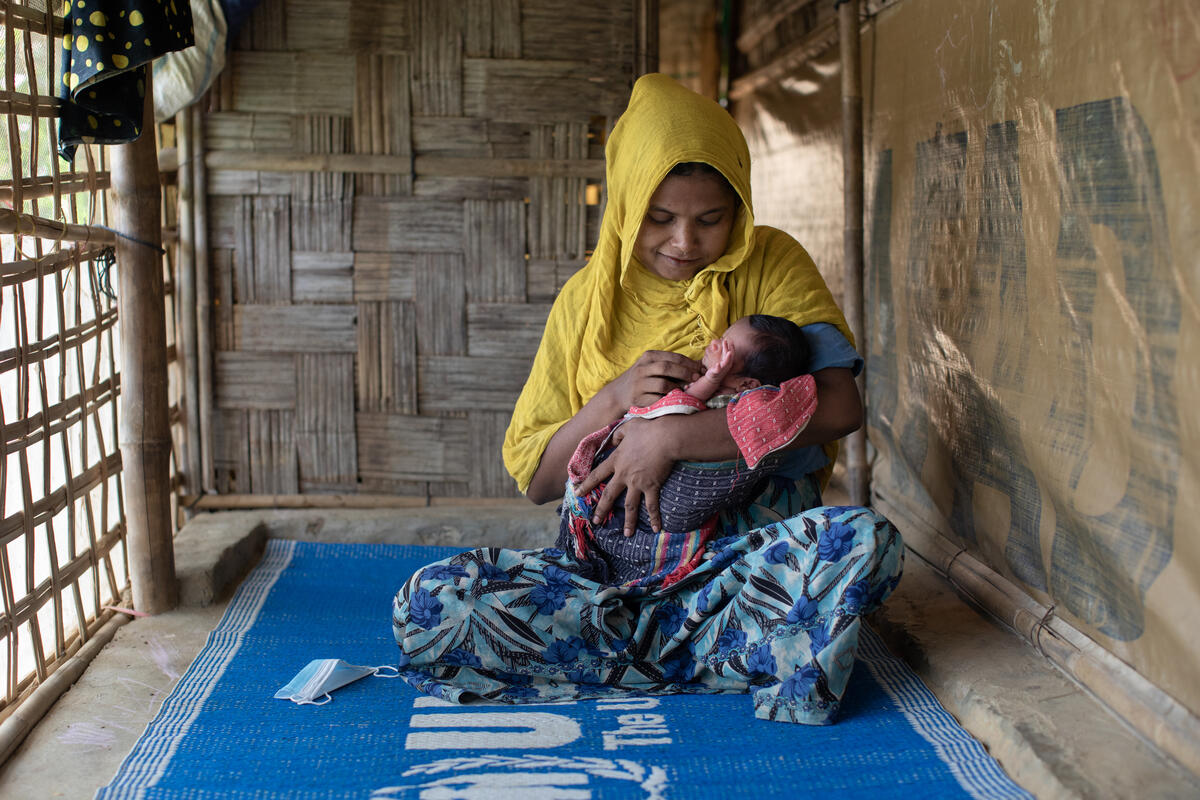UNHCR seeks $75 million to aid tsunami victims
UNHCR seeks $75 million to aid tsunami victims

GENEVA, Jan. 7 (UNHCR) - The UN refugee agency, already taking an uprecedented role in natural disaster relief, today announced a six-month $75 million appeal to provide shelter, non-food aid and logistical support for hundreds of thousands of victims of the Indian Ocean tsunami disaster.
The UNHCR operation, stretching from Indonesia to Sri Lanka and Somalia, is part of an overall UN "flash appeal" for $977 million launched Thursday in Jakarta by Secretary-General Kofi Annan.
"The international support and solidarity shown in the face of this disaster is truly impressive," UN High Commissioner for Refugees Ruud Lubbers said in Geneva on Thursday. "UNHCR has been hard at work on the ground since the day of the Dec. 26 tsunami and we've already devoted considerable resources from our emergency reserves. Now we need our government donors to quickly step forward with the actual funding for this urgent work so we can keep the momentum going. Lives depend on it."
UNHCR's activities as part of the overall UN disaster response effort will concentrate on the provision of emergency and longer-term shelter, essential non-food items such as blankets, cooking kits and jerry cans, and logistics and transport to ensure life-saving aid gets to those who need it.
At the same time, the agency stressed it would not divert resources from its primary activities that protect and assist refugees fleeing persecution and fighting. UNHCR's response to the tsunami disaster "is not done at the expense of our standing capacity to respond to refugee emergencies anywhere else in the world," said Janet Lim, Director of UNHCR's Bureau for Asia and the Pacific.
Speaking to representatives of donor countries in Geneva, Lim even urged UNHCR's traditional donor countries to ensure "their generosity to victims of this disaster will not be at the expense of the refugees all over the world who need care and protection."
Assistant High Commissioner Kamel Morjane, who oversees all of UNHCR's international field operations, was in Jakarta for Thursday's meeting of world leaders and was scheduled to fly to the tsunami-ravaged Indonesian province of Aceh on Friday with the Secretary-General and other members of the UN team.
UNHCR's participation in natural disaster response is a rare exception. The agency's specific mandate is to protect and assist refugees fleeing persecution and violence. While it has responded to many "man-made" refugee emergencies over the past five decades, this is the first time UNHCR has mounted a major operation for a natural disaster.
"The enormity of this crisis requires all of us to contribute our expertise and resources, which UNHCR is doing at the request of the Secretary-General and as part of the overall UN response," Morjane said. "UNHCR has long experience in Somalia, Indonesia and Sri Lanka, so it is logical for us to use our knowledge, means and expertise to help in all three countries."
The overall UN appeal made public Thursday covers a six-month period for the humanitarian emergency needs of an estimated five million people in Indonesia, the Maldives, Sri Lanka, the Seychelles and Somalia.
UNHCR's specific responsibilities include a $60 million programme in Indonesia for temporary and longer-term shelter and non-food items for up to 175,000 people on Aceh's battered west coast.
In Sri Lanka, the UNHCR appeal calls for $15 million to cover emergency shelter and non-food needs for 100,000 people, and to increase the refugee agency's existing logistics and distribution network to reach more than 800,000 displaced people.
Prior to the tsunami, UNHCR was helping 390,000 conflict-displaced people and returning refugees in Sri Lanka. UNHCR, which has operated in Sri Lanka for the past 20 years, sprang into action on the very day of the tsunami, distributing plastic sheeting and other relief items to people whose homes were washed away.
In Somalia, UNHCR is appealing for an initial $500,000 to assist the worst-affected areas through provision of relief items and shelter materials for 5,000 households. This will be for an initial three-month period pending a more comprehensive assessment in Somalia.
UNHCR has already sent 32,500 blankets and 2,995 plastic sheets from its supplies in Kenya (normally used for Sudanese and Somali refugees) to the port of Mombasa, where they are being loaded on a ship bound for Somalia this weekend. A further 12,500 blankets and 22,900 cooking sets of are to follow next week, along with 20,000 mattresses and 10,000 jerry cans.
UNHCR, which works in 120 countries, currently has more than 17 million refugees and others of concern worldwide, with a budget of about $1 billion annually.








